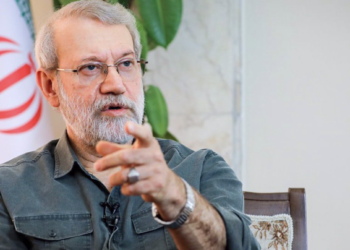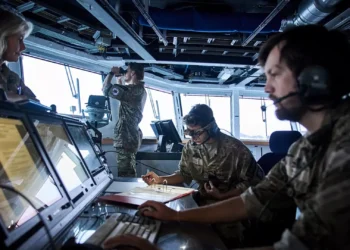ATHENS (Realist English). A former Apple engineer has launched a defence start-up in Athens that is aiming to shake up the global military technology landscape by offering integrated, low-cost autonomous weapons systems tailored for maritime operations.
Delian Alliance Industries, founded by Dimitrios Kottas, a former member of Apple’s secretive Special Projects Group, is developing aerial and naval drones, surveillance towers, and sensor fusion technologies — all manufactured in-house. The company is positioning itself as a fast-moving alternative to legacy defence contractors such as BAE Systems, Airbus, Rheinmetall, Saab, and Leonardo.
“The opportunity to build new defence primes doesn’t come often,” said Kottas, Delian’s co-founder and CEO. “If there was ever a time for that window to open, it’s now. I believe the next decade will see a technological arms race that fundamentally reshapes Western warfare.”
Delian has secured $14 million in funding to expand its operations and enter global markets. The company is already supplying its sensor fusion platforms to the Greek military and civilian authorities for applications such as wildfire detection and environmental monitoring. But Kottas says the true focus lies in building cost-effective deterrence for middle powers — nations aligned with the West but lacking the military budgets of superpowers.
Full-stack defence engineering
Unlike many defence start-ups that license hardware or partner with legacy manufacturers, Delian insists on vertical integration, developing its own hardware, software, and manufacturing processes. This approach, inspired by Apple and Tesla, is designed to reduce costs and accelerate development cycles.
“Our real competitor is time,” Kottas said. “Our adversaries are designing and deploying systems at speeds we can’t afford to ignore. Most Western defence procurement processes are optimized for peacetime, and that’s no longer the world we’re in.”
Delian is part of a broader trend of Silicon Valley alumni pivoting into defence. Companies like Anduril, founded by Oculus creator Palmer Luckey, and Europe’s Helsing, backed by Spotify co-founder Daniel Ek, are reshaping perceptions of military innovation. Like its peers, Delian has also attracted former talent from Palantir, the US-based data analytics firm with deep government ties.
Kottas returned to Greece in 2021 as tensions escalated between Greece and Turkey in the Aegean Sea. The regional threat environment, he said, provided a real-world proving ground for maritime defence technologies.
“There’s an oversaturated market for expensive drones. But maritime defence — small island protection against revisionist threats — is a scenario shared by many countries,” he said, citing potential demand in India, South Korea, Singapore, and northern Europe.
Innovation by necessity
Operating from a facility near Athens, Delian has recently showcased prototypes of its “Interceptigon” autonomous systems — fixed-wing drones and jet-ski-style explosive boats designed to launch from hidden positions and neutralize incoming naval or aerial threats. The systems blend software, sensors, and strike capability into compact, deployable units.
“Silicon Valley taught me the value of moonshots,” Kottas said. “By aiming for audacious goals, you force innovation at a pace most institutions can’t match.”
Nathan Benaich, partner at Air Street Capital, which co-led Delian’s recent funding round with Marathon Venture Capital, called the company’s integrated model a key strategic advantage.
“Software alone won’t defend a border,” Benaich said. “You need tight integration of hardware, software, and manufacturing under one roof. Retrofits won’t cut it.”
As Europe and allied nations ramp up defence spending amid growing geopolitical uncertainty, Delian’s rapid, affordable approach may offer a blueprint for a new generation of agile defence firms — built not in Washington or Berlin, but on the Aegean coast.


















